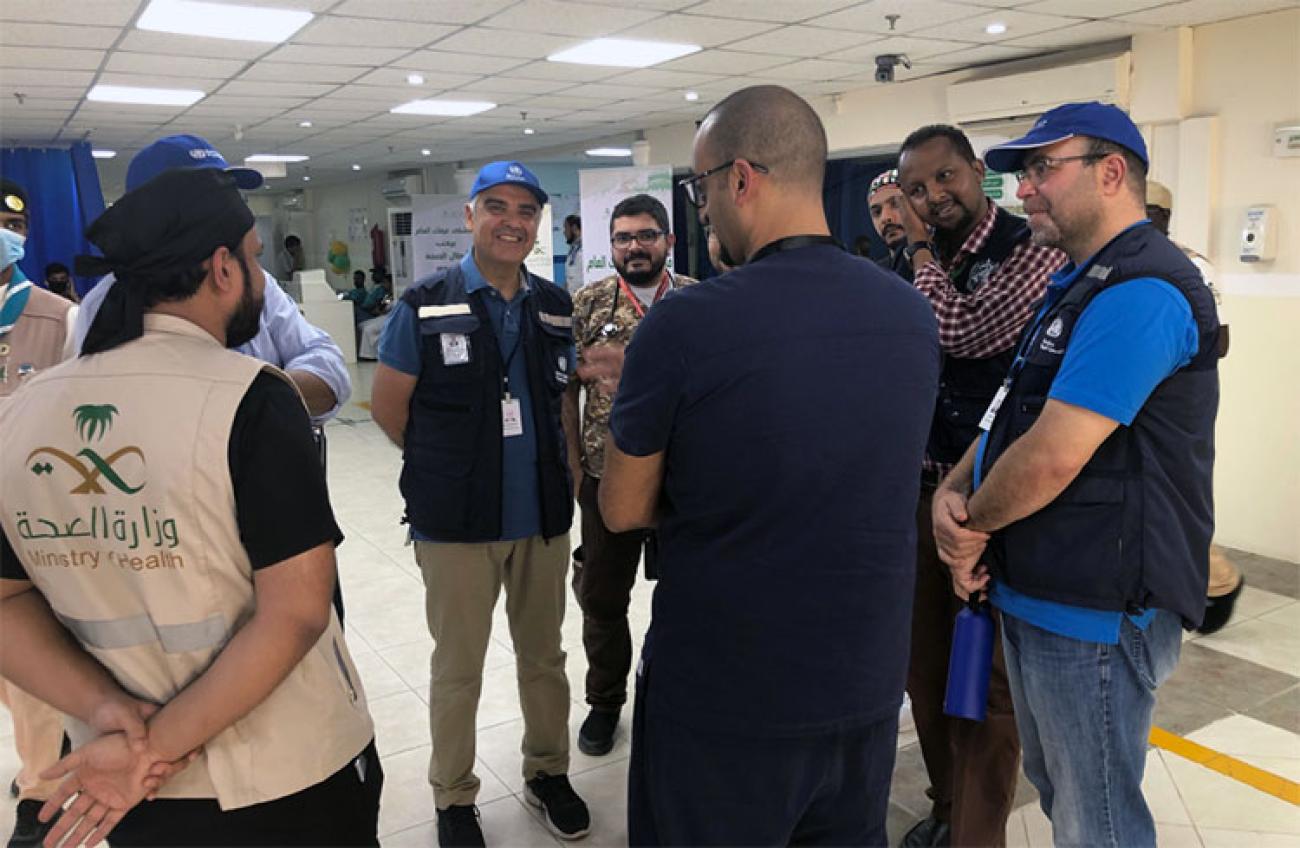Story
WHO Statement on Successful Conclusion of Hajj 1440/2019
18 September 2019

WHO praises the effectiveness of the public health mitigation measures put in place by the Ministry of Health of Saudi Arabia to ensure a safe pilgrimage.
- The World Health Organization (WHO) would like to congratulate the Government of Saudi Arabia and the Ministry of Health for successfully hosting the hajj season 1440/2019 without a single public health event or disease outbreak being reported among pilgrims performing the hajj.
- In addition, WHO expresses its deep appreciation to all the health care heroes and volunteers for their dedication in providing health care services to 2.5 million pilgrims.
- WHO deployed a team of experts to support the Ministry of Health and ensure public health preparedness measures to prevent any potential disease outbreaks.
- Hajj 1440/2019 came at a time of numerous threats to global public health. WHO recently recognized the outbreak of Ebola as a public health emergency of international concern (PHEIC), requiring a global response. Moreover, cholera, measles, polio and other infectious diseases are being reported from many countries participating in the hajj, highlighting the need for early detection of, and timely response to, public health emergencies. The Health Early Warning System (HEWS) tool was developed by the Saudi Mistry of Health in collaboration with WHO to facilitate detection and response. This year, more than 100 alert signals were detected through the new tool. All signals were investigated immediately, and appropriate interventions were then implemented. Happily, none of the signals represented a public health emergency.
- As part of the HEWS system, the health authorities issued daily situation updates, reflecting the Saudi authorities’ strong commitment to transparency.
- During the course of its mission, the WHO team visited health care centres and hospitals in Mena, Muzdalefa and Arafat to see first-hand the work done on the ground. Our field visits showed that the system is in place and functioning well.
- The Saudi authorities were well prepared to prevent and respond to the risks related to mass-gatherings, such as heat illnesses and food poisoning. The high level of preparedness reduced the number of cases to the minimum, and no major health issues were detected among the pilgrims during this year’s hajj.
- WHO worked with the Saudi authorities to assess health facilities in the Holy Places using standard WHO tools. The results of this assessment will help the authorities to further enhance services and meet the needs of pilgrims.
- We greatly appreciate the high level of coordination and collaboration that was adopted by all sectors throughout the hajj season. This collaborative, multisectoral approach was evident on the ground. All sectors worked beyond the call of duty, employing all resources and exerting all efforts to enable pilgrims with critical health conditions complete their hajj rituals. Air medical evacuation by different sectors was one of many examples.
- WHO praises the effectiveness of the public health mitigation measures put in place by the Ministry of Health of Saudi Arabia to ensure a safe pilgrimage.
- WHO and Saudi authorities calls on all countries to commit to the Hajj-related health requirement and advices jointly provided and to remain vigilant and continuously monitor any public health threats that may be associated with returning pilgrims, and WHO will be working with all our Member States to strengthen their disease surveillance systems and enhance risk communications.
- Finally, we wish all pilgrims a safe return home after concluding their spiritual journey in this year’s hajj.
UN entities involved in this initiative
WHO
World Health Organization

